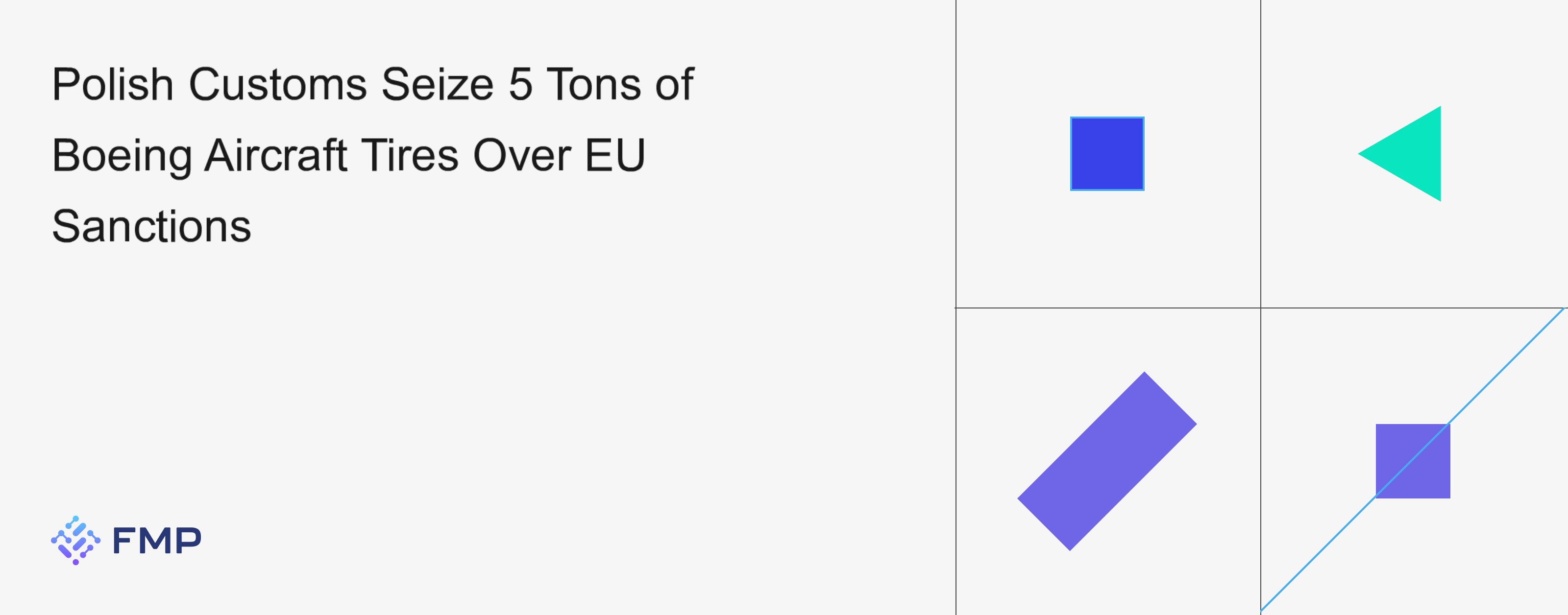
Polish customs officers intercepted a truck carrying five metric tons of tires for civilian Boeing aircraft destined for transit through Belarus and Russia—goods explicitly barred under the latest European Union sanctions on Russia. The seizure, announced by Poland’s National Revenue Administration, underscores the tightening enforcement of trade restrictions imposed after Russia’s 2022 invasion of Ukraine.
What Happened
Customs teams in Koroszczyn discovered that the driver falsely declared the cargo as car and bus tires. Instead, the load consisted of specialized aircraft tires approved for Boeing civil planes, originating from Spain and bound for Azerbaijan. Polish authorities have launched criminal fiscal proceedings for customs fraud, and the sanctioned goods remain detained.
Why It Matters
Supply-Chain Risk: Boeing’s global logistics networks must navigate an expanding web of sanctions, increasing the risk of shipment delays and compliance costs.
Regulatory Enforcement: The incident highlights how EU member states are intensifying border inspections to stem indirect support for sanctioned entities.
Legal Exposure: Companies relying on third-party logistics partners face heightened scrutiny and potential penalties if paperwork is misdeclared.
Boeing’s Financial Resilience
Despite operational hurdles, Boeing’s financial footing remains solid. According to FMP’s Company Rating & Information API, Boeing holds a BBB+ corporate rating and reported $12 billion in cash and equivalents as of its latest quarter—providing ample liquidity to absorb compliance-related disruptions (Company Rating & Information API).
A look at its balance sheet also shows manageable leverage: FMP’s Balance Sheet Statements API indicates total debt of $70 billion against assets of $150 billion, suggesting the ability to maintain operations while navigating sanction-driven supply-chain frictions (Balance Sheet Statements API).
Key Takeaways
Enhanced Due Diligence: Aerospace firms must vet shipping routes and logistics partners to ensure full compliance with evolving sanctions.
Operational Contingencies: Maintaining buffer inventories and alternate suppliers can mitigate risks of unexpected detentions.
Financial Buffering: Strong liquidity and investment-grade ratings can help aerospace leaders like Boeing weather sanction-related setbacks.

